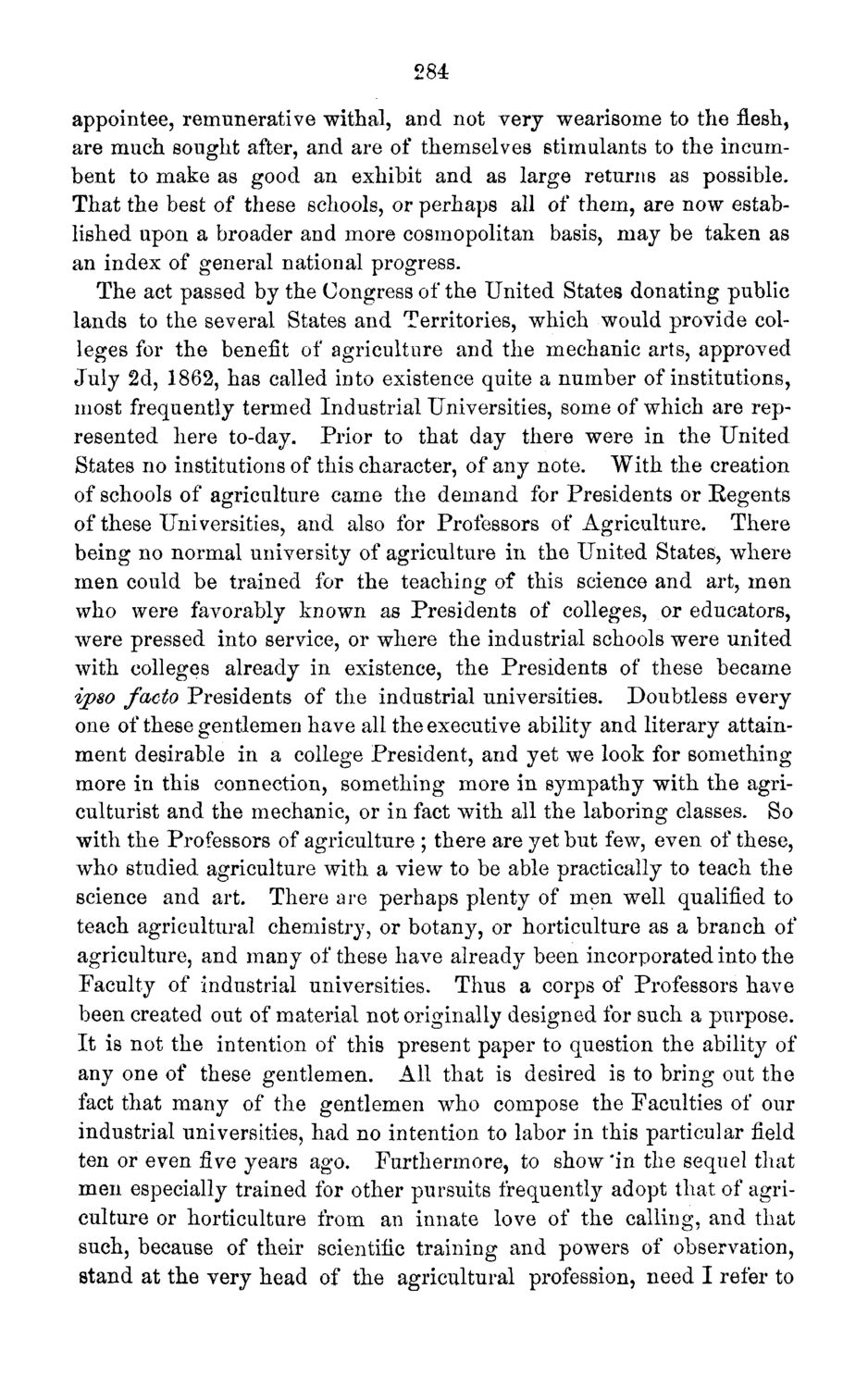| |
| |
Caption: Board of Trustees Minutes - 1871
This is a reduced-resolution page image for fast online browsing.

EXTRACTED TEXT FROM PAGE:
284 appointee, remunerative withal, and not very wearisome to the flesh, are much sought after, and are of themselves stimulants to the incumbent to make as good an exhibit and as large returns as possible. That the best of these schools, or perhaps all of them, are now established upon a broader and more cosmopolitan basis, may be taken as an index of general national progress. The act passed by the Congress of the United States donating public lands to the several States and Territories, which would provide colleges for the benefit of agriculture and the mechanic arts, approved July 2d, 1862, has called into existence quite a number of institutions, most frequently termed Industrial Universities, some of which are represented here to-day. Prior to that day there were in the United States no institutions of this character, of any note. With the creation of schools of agriculture came the demand for Presidents or Regents of these Universities, and also for Professors of Agriculture. There being no normal university of agriculture in the United States, where men could be trained for the teaching of this science and art, men who were favorably known as Presidents of colleges, or educators, were pressed into service, or where the industrial schools were united with colleges already in existence, the Presidents of these became ipso facto Presidents of the industrial universities. Doubtless every one of these gentlemen have all the executive ability and literary attainment desirable in a college President, and yet we look for something more in this connection, something more in sympathy with the agriculturist and the mechanic, or in fact with all the laboring classes. So with the Professors of agriculture ; there are yet but few, even of these, who studied agriculture with a view to be able practically to teach the science and art. There are perhaps plenty of men well qualified to teach agricultural chemistry, or botany, or horticulture as a branch of agriculture, and many of these have already been incorporated into the Faculty of industrial universities. Thus a corps of Professors have been created out of material not originally designed for such a purpose. It is not the intention of this present paper to question the ability of any one of these gentlemen. All that is desired is to bring out the fact that many of the gentlemen who compose the Faculties of our industrial universities, had no intention to labor in this particular field ten or even five years ago. Furthermore, to show *in the sequel that men especially trained for other pursuits frequently adopt that of agriculture or horticulture from an innate love of the calling, and that such, because of their scientific training and powers of observation, stand at the very head of the agricultural profession, need I refer to
| |